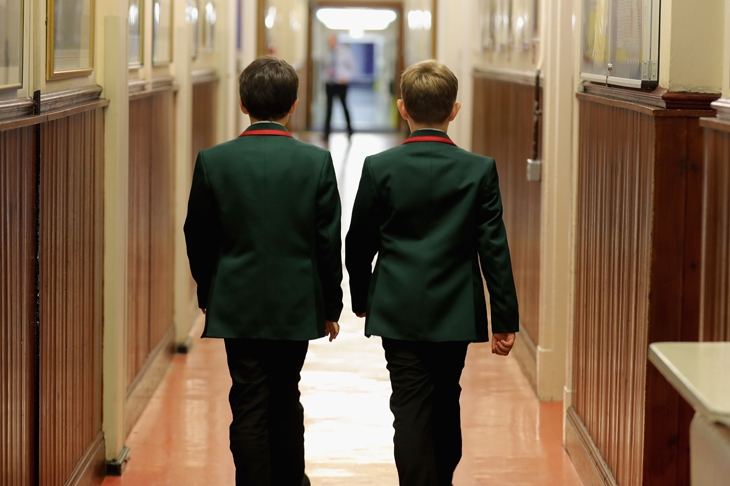The Department for Education (DfE) published its finalised data on the 2018 GCSE results last week, revealing that, for the second year running, white pupils are doing worse in English secondary schools than any other ethnic group. According to the new Progress 8 measure, which assigns a score to GCSE entrants based on how much progress they’ve made between the ages of 11 and 16 relative to children of similar abilities, Chinese pupils do the best, with a score of 1.08, Asians are second (0.45), then blacks (0.12), mixed race (-0.02) and, bringing up the rear, whites (-0.10). What that score means is that on average white children are behind by a tenth of a grade in each of their best eight GCSEs compared to all English schoolchildren with the same grades at the age of 11.
Needless to say, the data has already been dismissed by heads of schools that have been labelled as ‘underperforming’ thanks to their poor scores (about 10 per cent of English secondaries are below the DfE’s ‘floor’ standard). They argue that Progress 8 penalises pupils from disadvantaged backgrounds because it treats how children perform in the tests they take at the end of Year 6 in primary school as the only relevant data point and ignores parental socio-economic status. A fairer measure, they say, would be for the DfE to assign progress scores to pupils based on their GCSE performance compared to children from similar backgrounds with the same results at the age of 11. By that metric, their schools would be about average — in some cases, above average. Incidentally, the reason non-white children from disadvantaged backgrounds aren’t penalised by Progress 8 is because a much higher percentage of them speak English as an additional language, which means their test scores at the end of primary school, when they may not be fluent in English, underestimate their academic ability. As they go through secondary their English improves, they get better at taking tests and, as a result, they appear to make more progress than white children.
The DfE has a robust response to this criticism. It points out that if Progress 8 was weighted in such a way as to assign higher scores to children from disadvantaged backgrounds that would be tantamount to holding those pupils to a lower standard. And that would be to fall into the trap of what George W. Bush called ‘the soft bigotry of low expectations’. But there’s another more subtle objection, which is that parental socioeconomic status is just one contextual factor among many and it would be somewhat arbitrary to take that into account, but ignore the others.
Another significant factor — a better predictor of Progress 8 than socioeconomic status, in fact — is ethnicity. Assigning average scores to children under such broad headings as ‘white’, ‘Asian’ and ‘black’ masks the huge variation within those categories. So white British children make less progress, on average, than ‘white’ children overall, which includes new immigrants from countries like Poland. But the lowest performers are children categorised as ‘white Gypsy/Roma’ and ‘white Irish traveller’. Within the ‘Asian’ category, children from India and Bangladesh perform better than those from Pakistan; while among ‘black’ pupils, those designated as ‘black African’ score above average, while ‘black Caribbean’ children score below.
I suppose some data purists might argue that ethnicity, as well as socio-economic background, should be taken into account when assigning progress scores to children, but imagine the hoo-ha if the DfE adjusted its expectations by ethnicity! I wouldn’t envy Damian Hinds, the Education Secretary, having to stand up in the Commons and announce that, henceforth, white British children have to make less progress than Indian or black African children in order to meet the DfE’s ‘floor’ standard.
The alternative would be to abandon any attempt to measure secondary schools according to how much progress their pupils make, but the danger is that parents would then judge schools solely on the basis of their raw GCSE results — an even less reliable metric than Progress 8. The strongest predictor of a child’s GCSE grades is their prior attainment at the age of 11, so if you control for that, which is what Progress 8 does, you’re going some way to providing parents with a decent yardstick. The fact is, white British pupils are under-performing relative to non-white children of similar abilities, and tossing out Progress 8 for revealing that inconvenient truth would be to shoot the messenger.







Comments